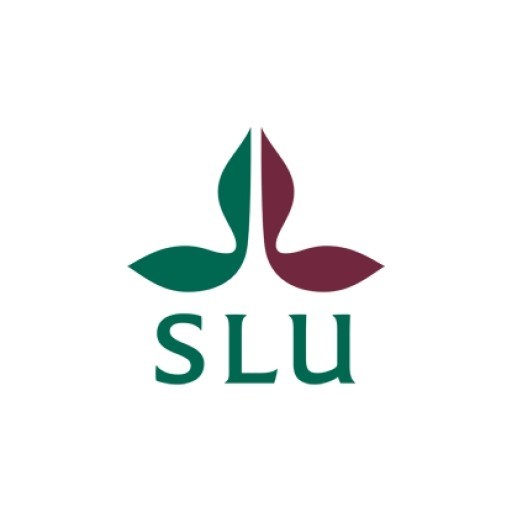Photos of university
The Systems Life Sciences program at Kyushu University offers a comprehensive interdisciplinary education designed to prepare students for innovative research and professional careers in the fields of life sciences, systems biology, and biomedical engineering. This program aims to cultivate a deep understanding of the complex mechanisms underlying biological systems, integrating knowledge from molecular biology, genetics, biochemistry, computational modeling, and systems engineering. Students will learn to analyze biological data, develop computational tools, and apply engineering principles to solve pressing issues related to health, environment, and biotechnology.
The curriculum emphasizes hands-on laboratory work, computational analysis, and collaborative research projects, fostering critical thinking, creativity, and problem-solving skills. International students are welcomed, and the program encourages cross-cultural exchange and global collaboration. Graduates will be equipped to contribute to advancements in personalized medicine, drug development, biomanufacturing, and sustainable environmental solutions. With access to state-of-the-art facilities and expert faculty members engaged in cutting-edge research, students will have the opportunity to engage in innovative projects that address real-world challenges in biological and medical sciences.
The program also offers various seminars, workshops, and internship opportunities to enhance practical skills and industry readiness. By integrating biological sciences with modern computational and engineering approaches, the Systems Life Sciences program at Kyushu University aims to produce versatile scientists and professionals capable of leading technological innovations and translating scientific discoveries into practical applications for society. Upon completion, graduates receive a Master’s degree in Systems Life Sciences, well-prepared to pursue careers in academia, research institutions, healthcare industries, or entrepreneurial ventures in biotechnology and related fields.
Research fields
Bioinformatics
Bioinformatics is an interdisciplinary research field of biological and information sciences that was introduced during the genome project. In order to master the genome and its applications to medical fields, we need not only the basic biological approaches, but also information-oriented models and applications from basic to advanced levels. This research field focuses on education and research that enable students to analyze subjects from the genome to the basic principles of life on the basis of information theory and various types of informatics. For this purpose, our program provides graduates with cutting-edge knowledge about measurement theory, mathematical science, statistics, basic informatics, database, algorithms, machine learning, bioinformatics, neuroscience, and their applications to biomedical sciences.
- Data Mining and Bioinformatics
- Biomathematical Science
- Bioelectronics
- Gene Expression Control
- Biological information systems
- Neuroimaging and Neuroinformatics
- Cognitive Neuroscience
Life Engineering
Future research will continue the development of fundamental science, from application to biodiversity such as deciphered expectations for tailor-made medicine based on the genome and the beginnings of regenerative medicine. The content for the Division of Life Engineering was established with the following statement as a starting point, "Engineering plays a role in the development and application of science, and in the improvement of people's lives." There are in fact many fields where industrialization based on the development of life sciences can be attempted. Our aim is to train talented researchers with backgrounds in agriculture and engineering so as to be able to play an active role in the following fields in the biotechnology course.
a. Promotion of biotechnology, for instance, as involved in the production of medicines and functional foods through the use of discovered and deciphered genomes in the performance analysis, effective uses, and production of various biological macromolecules.
b. Promotion of biotechnology, where the role of the biomedical engineer is to learn the biological, chemical, and physical aspects of organization and internal organs of the living body, as well as to develop various techniques and materials targeting internal reproductive organs; as such, biomedical engineering is closely related to the important fields of regenerative medicine, medical history, operation techniques, mechanical organs, and the development of implants for patients with challenging illnesses, with the aim of contributing to saving patients' lives and improving their quality of life.
c. The field of macromolecular biology focuses on bio-compatibility, biodegradability,and biological absorption of indispensable materials in regenerative medicine, with the aim of limiting the impact on the environment. Biological macromolecule research is likely to have a large impact on the market, with its focus on high performance materials for regenerative medicine, but also raw materials that harmonize with the environment. This field of study promotes the training of biomaterial engineers with a deep understanding of biological macromolecules, various bioceramics, metallic materials for the living body, the development of composite materials, and materials that are compatible with the application of nanotechnology.
d. We aim to promote the development of the up-to-date bioinstrumentation techniques of nano-micro diagnosis that apply to biotechnology imaging and the microelectromechanical system.
The following curriculums are offered according to the goals of the aforementioned human resources development. We believe our students should be able to acquire fundamental knowledge regarding living organisms, cells, and genomes, and to stay in touch with the rapid changes and developments in this field. The key is for students to learn to learn, or to remain flexible enough to update their knowledge autonomously Additionally, research subjects that are typically regarded as applications may have direct effects on students' career paths. Moreover, it has become a worldwide trend to obtain patents for any invention, and so it is crucial that research findings are patented. Accordingly, we provide lectures on patent strategy and the start-up of a bio venture business.
- Life Process Engineering
- Biotechnologies for therapy, diagnosis and drug discovery
- Life Engineering and Physics
- Biofunctional Engineering
- Microsystems and Medical Engineering
- Cellular Regulation Technology
- Structural Biology
Medical Molecular Cell Biology
In the post-genome era, the most important issue in human biology is the diversity at different levels of human nature such as "cell to cell", "tissue to tissue", "male and female" and "population to population". The difference in disease susceptibility among individuals has been one of the critical issues in medical science. The mission of our division is to nurture researchers (and advanced technical experts) who can effectively address the issues in modern human biology. We expect young researchers not only to pursue the experiments intensively, but also to devise adequate experiments by fully utilizing the enormous " omics " data available.
In addition, current research in human biology must fully address bioethical issues based on the integration of perspectives from medical research and medical care, and the concerns of society and individuals. We provide comprehensive educational opportunities to students for the diverse field of medical genome sciences including molecular medicine, molecular biology, genetics and population genetics, structural biology, bioinformatics, and bioethics. We also provide the students the opportunities of joining in cutting-edge research projects, such as 1) the analysis of human variation viewed from genomic diversity; 2) the analysis of homeostatic mechanisms based on genome information; 3) the structural and functional analysis of proteins and their application for medicine; 4) the genetic analysis of multifactorial disorders and intractable disorders; and 5) the development of new methods of data analysis to expand the medical knowledge.
- Molecular Cell Biology
- Biology of Sex Differentiation
- Computational Biology
- Human Molecular Genetics
- Structural Life Science
- Integrated Omics
- Cellular Memory
- Metabolomics
Molecular Life Sciences
The eukaryotic cell is a core structural unit that constitutes the bodies of higher organisms, and operates various activities of life with highly sophisticated membrane structures. The Division of Molecular Life Sciences conducts research into the integrated biology of animals and plants from basic structures of genes to high-order functions of bodies by focusing on the following aspects; mechanisms of chromosomal DNA replication for maintaining genome structures, molecular dynamics of high-ordered structures from protein complexes to organelles managing cellular functions, for example, signaling mechanisms of cell-cell communication for cell proliferation, cell formations and metabolism regulation mechanistic features of functions in individual bodies including development and differentiation, and formation of neural networks and immune systems. We also provide basic lectures to students concerning other divisions aiming to understand molecular biology of life from molecular, cellular and individual aspects. The lectures include basic structures and functions of the cell, developmental mechanisms of individual bodies from fertilization to highly organized cell societies, and the coordination of nerve systems to manage high-ordered biological activities.
- Molecular and Developmental Cell Biology
- Plant Molecular Biology
- Molecular Cell Biology
- Membrance Cell Biology
- Molecular Genetics
- Molecular Neuroscience
- Chromosomal Functions
- Protein Science and Cellular Biochemistry
Biological Sciences
Recent developments in ecology and evolutionary biology provide us with better tools to investigate interactions among individuals and the coexistence of species within ecosystems. Similar advances in other branches of biology have likewise led to improved knowledge and techniques. At the individual level of cell developments in physiology we have refined our methodologies of analyzing biological phenomena. Comparable advances in molecular biology have enhanced our knowledge of genomes and clarified the details of mechanisms underlying physiological processes.
The current requirement is to integrate all such developments to investigate interactions between organisms and their environments, and to deepen our understanding of the mechanisms underlying various biological attributes found between individuals and populations.
With this in mind, our study areas include 1) perceptions of, and responses to, environmental stimuli in animals, 2) reception of, and responses to, light in plants, 3) adaptive strategies in reproduction and social structures in organisms, 4) establishment and maintenance of community structures in marine organisms, 5) molecular evolution and the maintenance of genetic diversity, and 6) mathematical aspects of complex biological phenomena.
With this focus we aim to integrate biological knowledge from the molecular, cellular, individual and population levels. By participating in research in our division, students can learn how to conduct cutting-edge research on mechanisms of animal and plant responses to environmental stimuli, ecological interactions between organisms and environments, and the generation and maintenance of biodiversity.
- Animal Physiology
- Ecology
- Theoretical Biology
- Cell Function
- Evolutionary Genetics
- Marine and Freshwater Biology
- Application form for admission.(Form-1)
- Curriculum vitae. (Form-2)
- Collation card/Examination card. (Form-3)
- Research Record. (Form-4)
- Official Academic Transcript to be issued by the university from which you will graduate or have graduated most recently.
- Graduation Certificate or Statement that confirms expected graduation.
- Recommendation.
- A copy of Certificate of Japanese ability (if applicable).
- Synthesized English qualifying examination score certificate:Submit Official Score Certificate of TOEIC, or Examinee Score Record of TOEFL, or the transcript of results of IELTS, or the certifying statement of results of Cambridge ESOL Examination (FCE, CAE or CPE). (Copy is accepted.)
- Certificate of the payment of Application fee (30,000 yen) (A copy of receipt for transfer of the application fee, or the printed "Result" page of the receipt of payment of Application fee
Funding for the Systems Life Sciences program at Kyushu University is available through various sources aimed at supporting both domestic and international students. Scholarships offered by the university include the Kyushu University President’s Scholarship, which is awarded based on academic performance and research potential, and the MEXT (Ministry of Education, Culture, Sports, Science and Technology) Scholarship, designed for international students and covering tuition fees, a monthly stipend, and travel expenses. Additionally, there are private scholarships and grants provided by governmental bodies, private foundations, and industry partners that students can apply for to offset costs associated with tuition, living expenses, research activities, and travel for conferences or collaborative research.
Entrance fee exemptions and tuition fee reductions are also available for outstanding students and those facing financial difficulties. Students enrolled in the program are encouraged to seek research assistantship opportunities where they can work on laboratory projects, gaining practical experience while earning supplementary income. Kyushu University also participates in international mobility programs, which sometimes provide additional funding to support students studying abroad or participating in exchange programs related to the Systems Life Sciences curriculum.
The university provides financial guidance and advisement services to help students identify and apply for funding opportunities suited to their circumstances. The program benefits from cooperation with governmental agencies and private sector organizations that may offer internships, grants, or sponsorships, further supplementing students' financial support options. Overall, the funding landscape for this program is diverse, aiming to minimize financial barriers and promote access to cutting-edge research and education in systems life sciences.
Systems Life Sciences at Kyushu University offers a comprehensive interdisciplinary education that integrates principles from engineering, biology, and medicine to address complex problems in health and biological systems. The program aims to cultivate professionals capable of designing innovative solutions for medical and biological challenges by providing a robust curriculum that combines theoretical knowledge with practical skills. Students have the opportunity to engage in cutting-edge research and development projects, working alongside leading experts in fields such as biomedical engineering, systems biology, and health informatics. The program emphasizes a multidisciplinary approach, fostering collaboration among students from diverse backgrounds including engineering, medicine, and natural sciences. This allows for a versatile educational experience that prepares graduates for careers in research, industry, and academia. The curriculum covers fundamental subjects including systems theory, biosignal processing, bioinformatics, and regenerative medicine, along with advanced coursework like neural engineering and medical device development. Practical training is integrated through internships, laboratory work, and collaborative projects, offering students real-world experience. Kyushu University's strong ties with hospitals, research institutes, and industry partners provide students with valuable opportunities to participate in internships and joint research initiatives. Graduates of Systems Life Sciences are equipped to contribute to innovations in healthcare technology, personalized medicine, and sustainable biological systems, addressing societal needs through scientific and engineering expertise. The program also encourages students to develop critical thinking and problem-solving skills essential for adapting to rapid technological advancements in the biomedical field. Overall, Systems Life Sciences at Kyushu University is designed to produce highly skilled professionals who can lead advancements in life sciences and healthcare, making a positive impact on society through scientific research and technological innovation.









